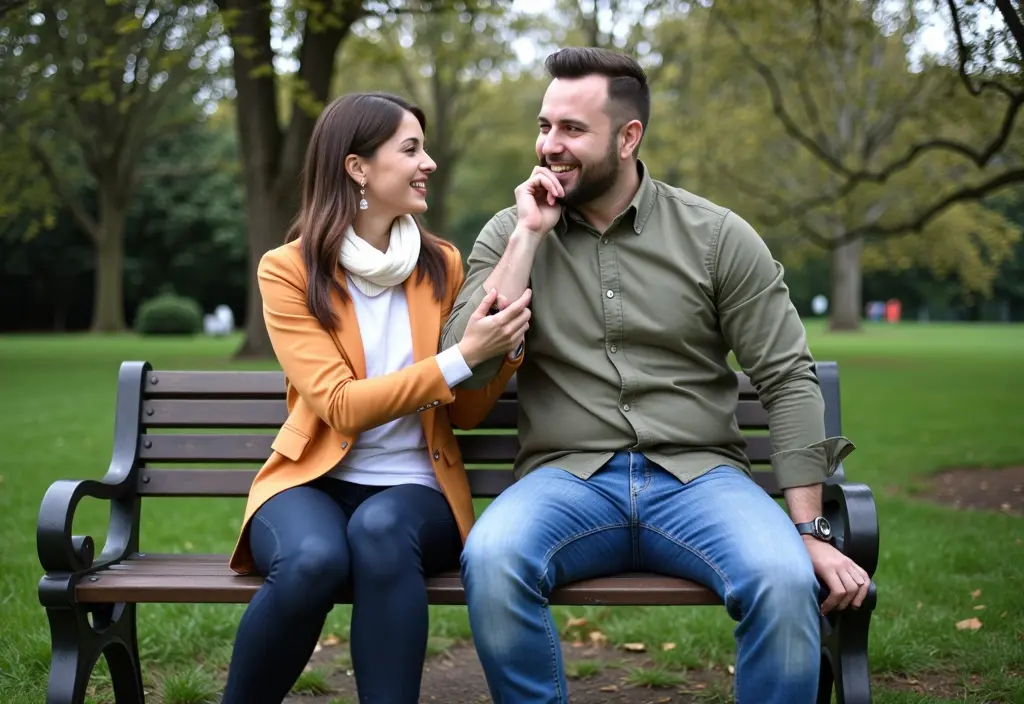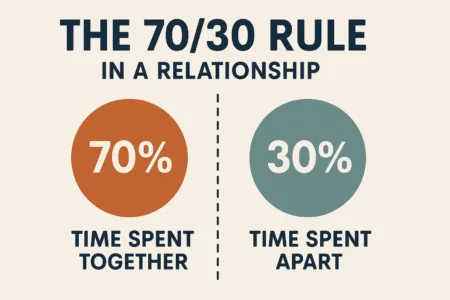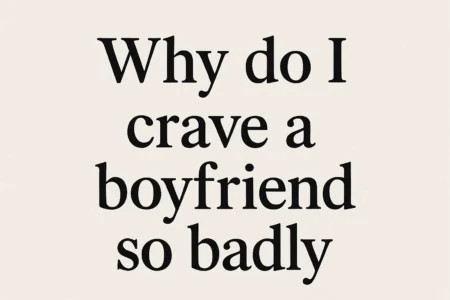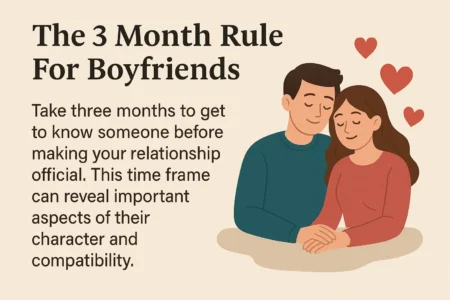It’s that question. The one that bounces around your head after a really great date and still lingers after the fifth. It’s the conversation you have with your friends over brunch, picking apart every text message and shared smile like you’re solving a mystery. How long should you know someone before dating? Before you make things official, before that nerve-wracking “what are we?” talk, before you hand over a piece of your heart to this exciting new person who gives you butterflies. We all want a simple rulebook. A magic formula. Wait one month. Three dates, then you know. Just see them through a season. If only it were that simple.
The real answer is messy and beautiful and deeply personal. I’ve lived it. I once leaped into a relationship after two exhilarating weeks, a whirlwind romance that burned out as quickly as it started, leaving me with whiplash. On the flip side, I spent almost two years in a slow-burn friendship with someone before we finally admitted there was more there, building a foundation so solid it felt like home.
My own history taught me the timeline isn’t about the calendar at all—it’s about clarity. It’s not about counting the days; it’s about making the days count. This guide won’t give you a number, but it will give you something better: the right questions to ask yourself, so you can find your perfect timing.
More in Connection & Dating Category
Do Guys Cuddle With Just Any Girl
Do Players Send Good Morning Texts
Key Takeaways
- There’s no magic number for how long you should know someone before dating. The right timeline is personal and depends entirely on your situation.
- Focus on the quality of your time together and hitting key milestones of understanding, not just the quantity of days or weeks that have passed.
- Before you commit, you need a solid grasp of their core values, how they communicate, and the way they handle life’s inevitable stresses.
- Moving from friends to partners follows a different path. You already have a deep understanding of who they are, so the focus is on transitioning the relationship’s dynamic.
- Trust your gut, always. But make sure that feeling is backed up by consistent actions and real-world evidence, not just wishful thinking.
Is There Really a Magic Number of Weeks or Months?
Let’s just rip the band-aid off: no. There isn’t a secret timeline that works for everyone. Society loves giving us these little benchmarks, like the “three-date rule,” as if human connection is a game with a clear set of instructions. But real connection doesn’t follow a script. It’s unpredictable, occasionally awkward, and completely unique to the two people in it.
Think about how you met. That context changes everything. If you matched on a dating app, you’re both there with romantic intention, which speeds up the whole discovery process. You can learn more in a few weeks of intentional dating than you might in months of knowing someone from your pottery class or a mutual friend’s party. In those low-pressure situations, connection can grow slowly, organically, without the spotlight shining on it.
What we often call a “deep connection” right at the start is usually just good old-fashioned infatuation. It’s that intoxicating, heart-pounding, can’t-think-straight feeling where everything they do is utterly captivating. Infatuation is a powerful drug. It’s designed to pull you in. But it isn’t the same as a real, lasting bond. Rushing into a relationship on that feeling alone is like building a house during a hurricane. It feels exciting, but it has no foundation. The goal is to let that initial storm of chemistry pass so you can see what’s left to build on.
So, If Not Time, What Should I Be Looking For?
If we’re ditching the calendar, what do we use instead? Simple. Instead of counting days, start looking for milestones. Think of yourself as a detective of the heart, gathering clues to build a complete picture of who this person is—especially when they’re not trying to impress you. It’s about seeing them in different situations, under different lighting, to understand who they are at their core.
Do Their Words Actually Match Their Actions?
This one is everything. Consistency is the foundation of trust, and it’s the loudest thing a person can say. In the early days, it’s incredibly easy for someone to be charming. They can promise the world, text you “good morning” every day without fail, and tell you everything you want to hear. But what do they do?
When they say they’ll call, does your phone actually ring? When they offer to help you move that heavy bookcase, do they show up? Are their actions, both big and small, in harmony with the person they claim to be?
I once dated a guy who could have been a poet. He sent me the most beautiful, heart-stopping messages about how much he cared for me and couldn’t wait to build something real. But when it came time to make a simple plan for Saturday night, he was a ghost. He’d cancel last minute or just vanish for days. His words built a beautiful fantasy, but his actions told the truth: I wasn’t a priority. That lesson was a painful one, but it was clear. Talk is cheap. Respect and genuine interest are things you do.
How Do They Handle a Bad Day (Yours and Theirs)?
Anyone can be great when the sun is shining and everything is going their way. The true person reveals themself when things get hard. Watch closely how they react when they’re stressed, annoyed, or disappointed. Do they shut down and give you the silent treatment? Do they get angry and start blaming everyone else for their problems? Or do they communicate what’s wrong and manage their stress like an adult?
Just as important is seeing how they respond when you’re the one having a rough day. Are they a source of comfort? Can they just sit and listen without immediately trying to solve your problem? Or do they get weird and distant, as if your bad mood is an inconvenience? Your partner shouldn’t be your therapist, but they must be a safe harbor. Seeing that they can ride out a little storm with you is a huge green flag. It shows they’re ready for a real relationship, which has its share of cloudy days.
Have You Talked About the Big Stuff?
You don’t need to plan your wedding after a month, but you should have some idea if you’re even reading from the same book. These big conversations rarely happen in a formal, sit-down interview. They trickle out naturally. You learn about their career goals when they complain about their boss. You learn about their family values when they share stories about their childhood.
Are your core principles in the same universe? This includes everything from how you view money and work-life balance to what you want out of life. If you dream of backpacking through Asia and they never want to live outside their home state, that’s a pretty big gap to bridge. You don’t have to be identical, but on the fundamental, deal-breaker issues, you should feel a sense of alignment. You need to know if your puzzle pieces even have a chance of fitting together.
What’s the Deal with the “Talking Stage” Anyway?
Ah, the “talking stage.” That weird, undefined limbo between meeting someone and being in a relationship. It’s a modern dating invention, born from a world of endless texting and social media options. In theory, it’s a great idea: a low-pressure trial period. It’s your chance to collect all those clues we just talked about without the weight of a formal title. You get to test the waters, check for compatibility, and spot red flags from a safe distance.
This is the time you learn their coffee order, their go-to karaoke song, and the story behind that little scar above their eyebrow. It’s a slow-burn of discovery. It’s where you find out if that initial spark has enough fuel to become a real flame. At its best, the talking stage is an incredibly valuable step.
How Long is Too Long to Just Be “Talking”?
But the talking stage has a dark side. It can easily turn from a healthy vetting process into a frustrating “situationship.” That’s what happens when it drags on for months and months with no forward momentum. You might be doing all the relationship things—regular dates, physical intimacy, daily check-ins—but without any of the actual commitment.
If you find yourself feeling anxious, confused, or constantly wondering where you stand, you’ve been in the talking stage too long. It’s no longer a path forward; it’s a holding pattern. This usually happens because one person is enjoying the perks of a relationship without wanting any of the responsibility. If you ask “what are we?” and get a vague, non-committal answer like, “I’m just seeing where things go,” that’s your answer right there. You’re not on the same page. A healthy talking stage should feel like you’re walking toward a destination together, not wandering in circles.
Is Daily Texting a Good Sign or Just a Habit?
During the talking stage, your phone is the main artery of connection. That “good morning” text can feel like a shot of espresso. But it’s so important to look past the frequency of the texts and assess their quality. Is this communication actually building a connection, or is it just a habit to fill the empty spaces in the day?
Constant contact doesn’t equal genuine intimacy. Are your conversations going anywhere? Are you sharing your hopes, your ridiculous fears, and your funny childhood stories? Or is it stuck in a loop of “how was your day?” Meaningful conversation requires curiosity and a little bit of vulnerability. They should be asking you questions that show they want to get inside your head, and you should feel comfortable doing the same. Daily texting can be a great sign of interest, but only if those messages are actually building something real.
What If We Were Friends First? Does That Change the Timeline?
Thinking about dating a friend is a whole different ballgame. You can throw the standard dating rulebook right out the window. You’re starting on level 50. You’ve already seen them at their best and probably at their messiest. You know their weird habits, you’ve heard all the stories about their exes, and you understand their character in a way that would normally take months or years to learn. The question isn’t about discovering who they are; it’s about transitioning what you are.
Are You Sure the Feelings Are Mutual?
This is the big one, and the stakes are incredibly high. If you misread the signs, you don’t just face rejection; you risk losing a cherished friendship. Before you say anything, put on your detective hat again. Look for small shifts in your dynamic. Is there a new kind of energy in your banter? Do you find yourselves making more physical contact—a hand that lingers on an arm, a hug that lasts a second too long?
Listen to how they talk about their love life with you. Have they stopped mentioning other people they’re seeing? Do they make little “jokes” about the two of you as a couple? These can be subtle hints. Sometimes, the only way to know for sure is to have the scary, honest conversation. It’s a gamble, but it’s better than living in limbo and wondering “what if.”
How Do You Transition from Platonic to Romantic?
Making that leap is a delicate process. I should know; I married my best friend. We had years of history built on a platonic foundation—late-night talks on the phone, celebrating big life wins, being a shoulder to cry on. The respect and care were already there. When we both realized our feelings had deepened, the transition was both the easiest and strangest thing in the world.
The challenge wasn’t learning to trust him or wondering if he was a good person; I already knew all that. It was about rewiring our entire dynamic. We had to learn how to be romantic partners while protecting the friendship that started it all. That meant being intentional. We started going on official “dates,” not just “hanging out.” And eventually, we had to talk. One night, my heart hammering against my ribs, I just laid it all out there and told him I thought there was something more between us. Hearing him say he felt the same was like finally coming home. That conversation was the bridge from one chapter of our lives to the next.
What Red Flags Should I Be Watching For That Slow Things Down?
No matter how you met, some behaviors should make you pump the brakes. They’re not automatic deal-breakers, but they are flashing yellow lights. They’re signs that you need to slow down and gather more information before proceeding. Ignoring them is like ignoring your car’s “check engine” light—you might make it a little further down the road, but you’re risking a total breakdown.
Here are some key red flags to watch for:
- Inconsistent Communication: They’re all in one minute, showering you with attention, and then they disappear for days on end. This hot-and-cold behavior is a classic sign of emotional unavailability or an indicator that you are one of several options they are keeping on rotation.
- Reluctance to Introduce You to Their People: After you’ve been seeing each other for a bit, someone who is serious about you will want to bring you into their world. That means meeting their friends. If they’re constantly making excuses or keeping you separate from the rest of their life, it’s a huge red flag that they see you as temporary.
- They Speak Poorly About All Their Exes: Listen carefully to how they talk about past relationships. If every single one of their exes was “crazy” or “toxic,” the problem might not be them. This pattern shows a lack of self-awareness and an inability to take responsibility for their part in things.
- Love Bombing: This feels incredible at first but is often a manipulation tactic. It’s over-the-top compliments, constant attention, and talk of your shared future way too soon. They sweep you off your feet to get you hooked, but this phase is often followed by controlling behavior. Real connection is a slow burn; love bombing is a forest fire.
And What About the Green Flags? What Signs Say “Go for It”?
Just as you watch for red flags, you need to recognize the green ones. These are the positive signs that tell you this connection is healthy, strong, and worth your emotional investment. Green flags feel like peace. They feel like safety. They’re the signs from the universe saying, “Yes, this is good. Keep going.”
Do You Feel Safe and Respected?
This is the bedrock of any healthy relationship. And safety is more than just physical. It’s emotional. It’s the freedom to state an opinion, share a feeling, or set a boundary without being afraid of their reaction. They listen to you, even when they disagree. They respect your “no.” You feel seen, heard, and valued. This sense of psychological safety is crucial. As research from institutions like the University of California, Berkeley shows, vulnerability is the gateway to intimacy, and you can only be vulnerable when you feel fundamentally safe.
Can You Actually Be Yourself Around Them?
One of the best feelings in the world is being with someone where you can finally take off the mask. You can be your weird, goofy, loud, or quiet self without feeling judged. You’re not constantly editing your words or hiding parts of your personality. The connection just flows. You laugh easily. Even the silences are comfortable. If you leave your time together feeling energized and even more like yourself, that is a massive green flag. It means you’re connecting authentically.
Are They Your Biggest Cheerleader?
A great partner is someone who is genuinely thrilled by your happiness. They don’t see your ambition as a competition. They don’t get insecure when you succeed. They celebrate your wins, whether it’s a huge promotion at work or just finishing a difficult workout. Their face lights up when you share good news. They are your biggest fan. They also encourage you when you’re struggling and push you to grow. This shows they see you as a teammate. A relationship where two people are constantly lifting each other up is a relationship with a future.
Does My Gut Feeling Really Count for Anything?
In a world that loves logic and pro-con lists, it’s easy to write off intuition as flaky or unreliable. But your gut feeling is one of the most vital pieces of data you have. It’s your subconscious mind working at lightning speed, processing thousands of tiny non-verbal cues—body language, tone of voice, fleeting facial expressions—and delivering a simple report: “this feels right” or “something is off here.”
Your intuition is your own personal security system, built from every experience you’ve ever had. You need to listen to it.
How Do I Know If It’s Intuition or Just Anxiety?
This is tough, because they can feel similar. But they come from different places. Anxiety is loud. It’s a frantic, buzzing energy rooted in fear of the future. It bombards you with a million “what ifs.” What if they leave? What if I say the wrong thing? Anxiety feels like a shaky panic.
Intuition is much quieter. It’s a calm, steady knowing that doesn’t need to explain itself. It’s not a racing heart; it’s a deep sense of peace or a heavy feeling of dread. The easiest way to tell the difference is to notice where you feel it in your body. Anxiety often lives in your chest and throat, making you feel tight. Intuition is usually felt deeper, in your stomach. To hear it, you have to quiet the noise of anxiety. Take a walk. Journal. Talk to a grounded friend. Give that quiet voice a chance to be heard.
Your Timeline is the Only One That Matters
So, how long should you know someone before dating? For as long as it takes you to feel confident that your choice is based on real information, not just a fleeting infatuation. For as long as it takes to see that their actions consistently back up their words. For as long as it takes you to feel safe, respected, and truly excited about what you could build together.
For you, that might be a few incredible, soul-baring weeks. For someone else, it might be a year of laughter and friendship. There is no right answer and no universal clock. So forget the rules and what everyone else is doing. This is your heart. This is your story. Trust yourself to know when it’s time to turn the page.
FAQ – How Long Should You Know Someone Before Dating
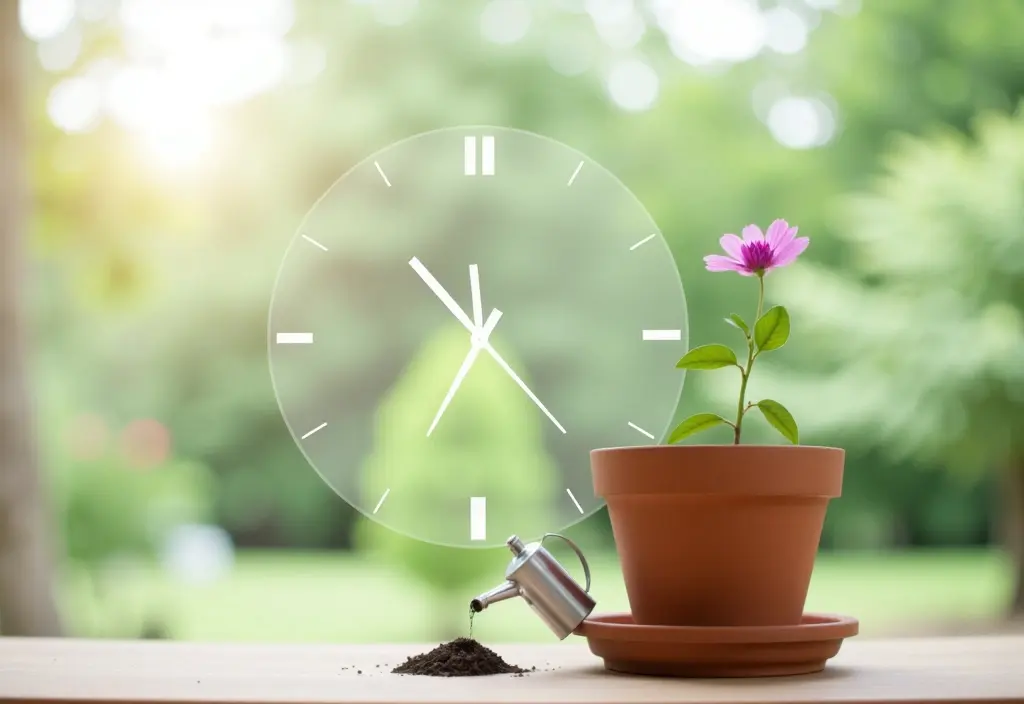
What are some green flags that show I should continue investing in the relationship?
Green flags include feeling safe and respected, being able to be yourself, having a partner who celebrates your successes and supports your growth, and noticing consistent actions that match their words, indicating integrity and genuine interest.
What are red flags that suggest I should slow things down?
Red flags include inconsistent communication, reluctance to introduce you to their social circle, negative comments about past partners, and love-bombing tactics. These signs indicate emotional unavailability or a potential imbalance in the relationship.
How can I tell if my feelings are based on intuition or just anxiety?
Intuition usually feels calm and steady, often in the stomach, while anxiety is often loud and feels in the chest or throat. Taking time to quiet your mind and observe where you feel these sensations can help differentiate between the two.
What signs indicate I am ready to make a relationship official?
You are ready when you feel confident that your partner’s actions align with their words, you understand their values, and you feel safe, respected, and genuinely excited to build a future together.
How long should I wait before starting to date someone?
There is no specific timeframe for how long you should know someone before dating; it depends on your personal sense of readiness, trust, and understanding of the other person’s core values and behaviors.

